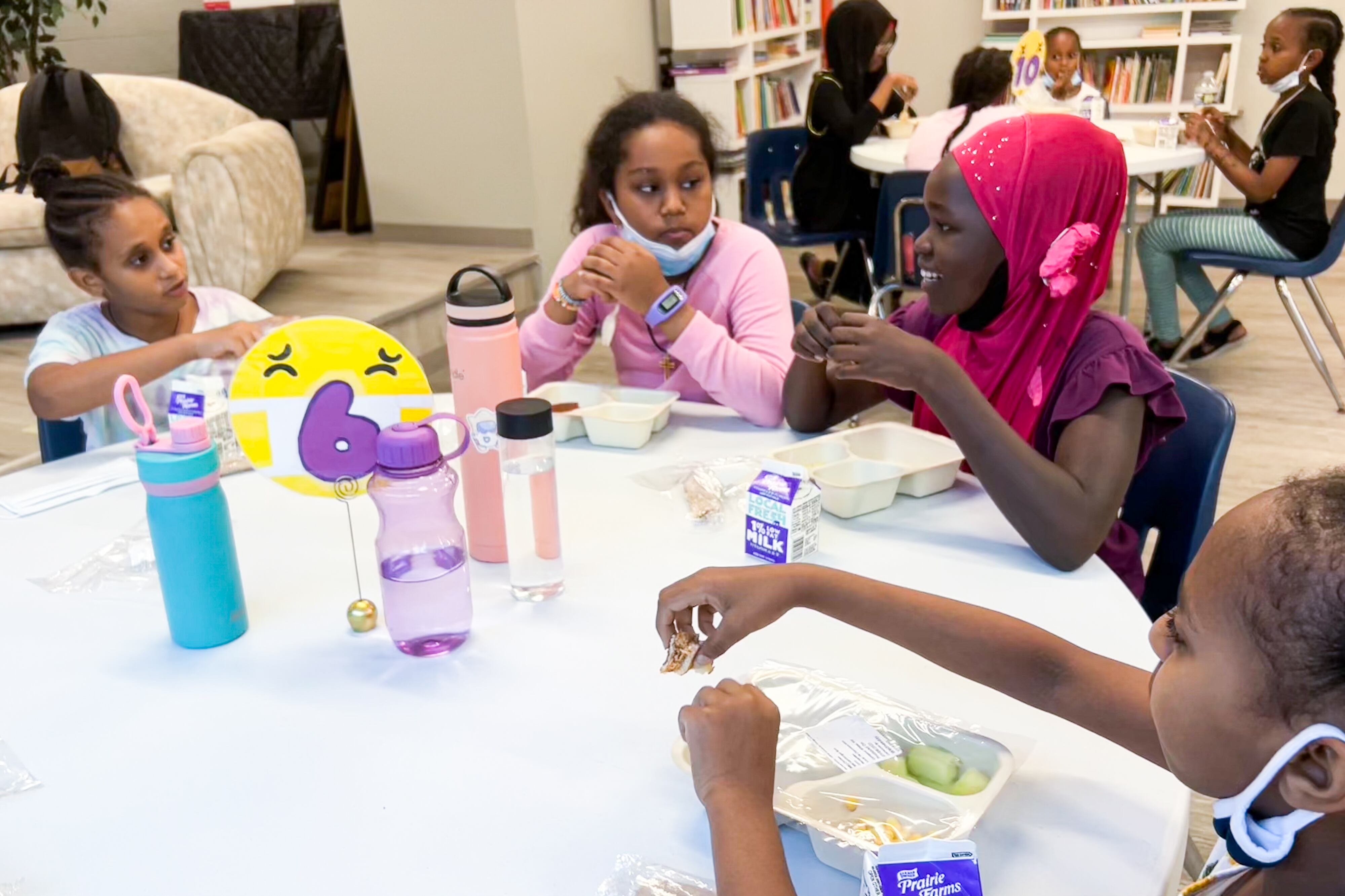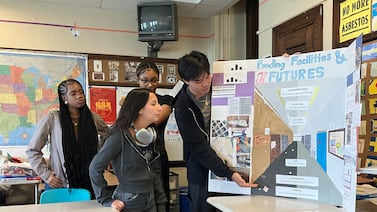On the ground floor of a 23-story apartment building in Uptown, Carol Dunbar and Tammie Dennis make sure 30 sets of little hands are washed.
It’s lunchtime at the child care center inside the 303-unit Lakeside Square Apartments. Today’s menu: a barbecue chicken sandwich, corn, honeydew melon, and milk.
Asha Ali, 9, boasts she’s on a list of good eaters, much to the surprise of her mother, Meryem Ali. Asha and her other daughter, Amal, 7, don’t always finish their food at home, Ali said, but they rave about lunches at the center. Vegetables are Asha’s favorite.
The meals served at the summer program inside the apartment building come from the Greater Chicago Food Depository, a 40-year-old food bank that’s partnering with more than 150 local organizations this summer to distribute lunches to children who rely on free or reduced lunch during the school year.
The Food Depository is one of several programs providing meals for Chicago children this summer – at a time when food insecurity in Chicago and other large cities such as New York has been worsened by the pandemic.
According to data analysis by Diane Schanzenbach, Northwestern University labor economist and a board member at the Greater Chicago Food Depository, Black and Latino families in the Chicago area are disproportionately affected by food insecurity, with 32% of Black households with children and 28% of Latino households with children reporting food insecurity compared to 16% of white households.
The problem is amplified during the summer when school is out.
Chicago Public Schools estimated that about 70% of students qualified for free or reduced lunches last school year. The school district also distributes free breakfasts and lunches to all children in the city through its LunchStop summer meals program. The program, which runs until Aug. 12, gives parents the option of picking up meal kits to bring home.
LunchStop operates at 75 locations throughout the city. The sites are chosen based on ZIP codes with low food access, high poverty rates, high participation in previous summers, and schools with existing indoor summer programs, according to CPS.
But not all parents can make it to the Food Depository distribution sites or CPS locations to pick up meals.
The Food Depository encourages families with need to go to Rise & Shine Illinois’ website to find locations for all summer meal sites in their area.
At Lakeside Square in Uptown, April Taylor said she appreciates that the child care center in her building provides her daughter with fun, educational programming and healthy meals. Her daughter, Janelle, 8, has regularly attended the summer and after-school programs for three years.
“During COVID, we had this inflation and everything with the food,” Taylor said. “It really is a big help for all of the parents.”
Dunbar, the community services coordinator for Lakeside Square Apartments, said she used to have to drive all the way to the south side to pick up food for the program, but now it’s delivered.
There can be challenges when welcoming new children to the program.
Many families who live in the building are from countries such as Ethiopia, Nigeria, Sudan, and Vietnam, and not all parents are comfortable with English, Dunbar and Dennis said. Sometimes children are also hesitant to try the lunches when they start attending the summer program. Dunbar and Dennis make sure to explain what is in the meals and ask the children to sample the food, they said.
Meseret Alemu said the program helps her daughter, Sharon, 10, with English and supplements her daughter’s education. Sharon enjoys the meals, which help her family if they don’t have food at home or her parents are busy during the day.
Melissa Ly, 15, lives in the building and helps out when she’s not working or at school. She didn’t always have food at home when she was younger, Ly says, but she always knew she could go downstairs and get a meal.
Eileen Pomeroy is a reporting intern for Chalkbeat Chicago. Contact Eileen at epomeroy@chalkbeat.org.





